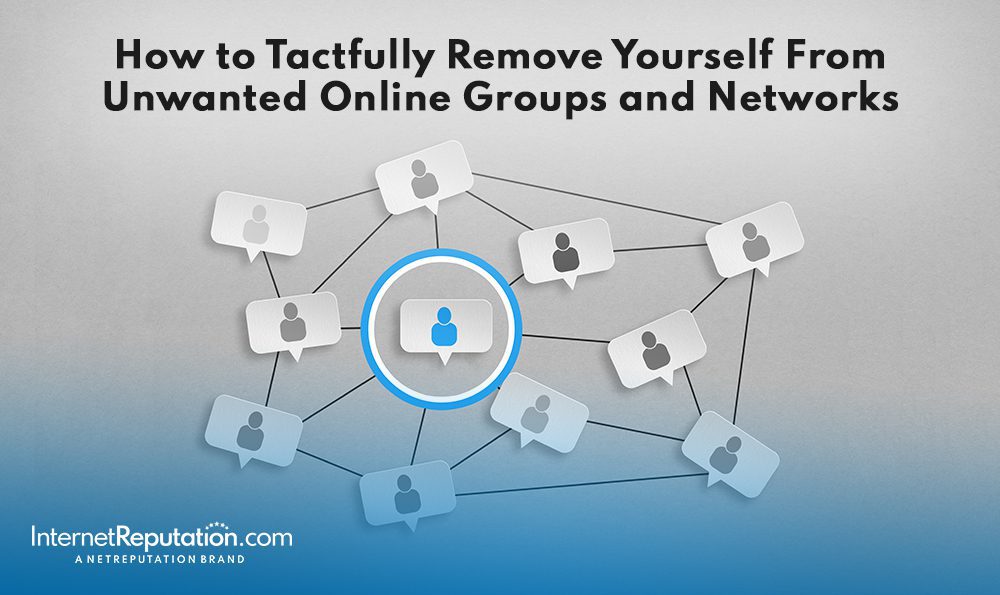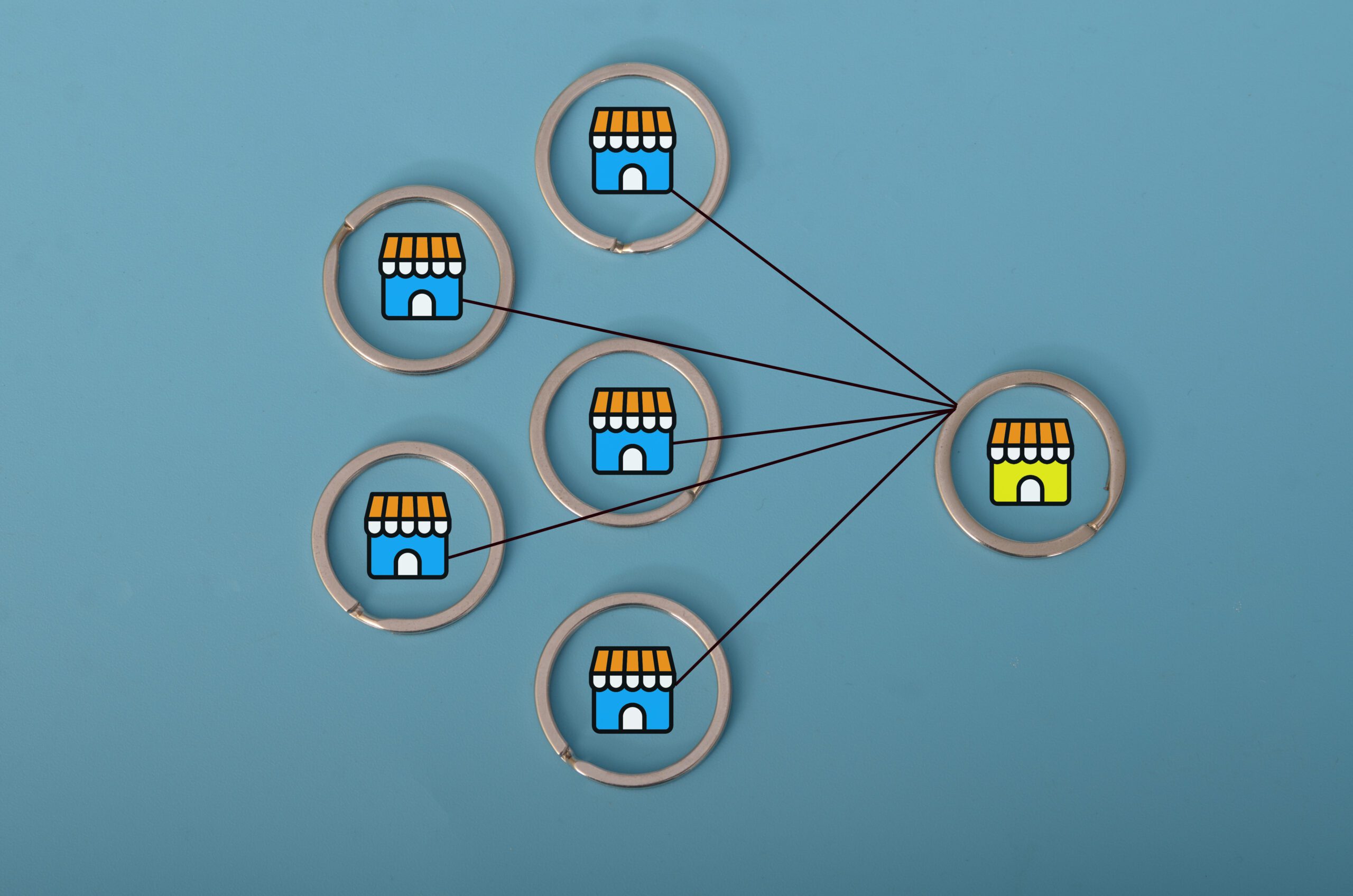How to Tactfully Remove Yourself From Unwanted Online Groups and Networks

Navigating social connections and preserving your online sanity are all delicate parts of the intricate dance you perform in today’s interconnected world. You’ve joined various online groups and networks over time, some out of interest, some for networking, and others, perhaps, in a moment of fleeting curiosity.
Now, you find yourself a member of too many spaces, not all of which serve your current interests or align with your values. It’s time to declutter your digital life, but you’re not sure how to exit these virtual rooms without slamming doors or burning bridges.
As you contemplate your next move, remember that the art of leaving is just as important as that of joining; it requires finesse, respect for shared experiences, and a touch of strategic thinking. What you need is a guide to bow out gracefully, ensuring you maintain your online relationships and reputation—so let’s explore the nuanced steps you can take to disentangle yourself from unwanted online groups without the unnecessary drama.
Assessing Your Online Memberships
Periodically reviewing your online group memberships can help you identify which ones you no longer wish to be part of. This process isn’t just about decluttering your digital space; it’s also about reclaiming your time and ensuring your online interactions are meaningful.
You’ll want to start by taking stock of every group you’ve joined. Scroll through your social media accounts, forum memberships, and email subscriptions. Ask yourself which groups you actively participate in and which ones align with your current interests or professional goals.
Notice if there are groups that you’ve outgrown or ones that no longer serve a purpose. Maybe they’re remnants of past hobbies or obligations that aren’t relevant anymore. If you’re skipping over posts or emails without a second glance, it’s likely a sign that it’s time to let go.
Understanding Group Departure Etiquette
Once you’ve identified the unwanted online groups you’re ready to leave, it’s essential to consider how to exit them respectfully and tactfully. Like any social situation, online interactions require a level of decorum to maintain your reputation and relationships. You don’t want to burn bridges or leave a negative impression behind.
It’s crucial to understand that your departure can affect the group dynamic. Here’s how you can ensure a smooth transition:
- Communicate Clearly: If you’re an active member, a simple goodbye message explaining your departure without oversharing or criticizing the group can be a polite way to bow out.
- Exit Gracefully: Use the provided tools to leave the group silently if you’re not an active participant, avoiding unnecessary attention.
- Offer Feedback Constructively: If asked for a reason, provide constructive feedback that may help the group improve, rather than focusing on personal grievances.
Crafting a Polite Exit Message
When crafting your exit message for an online group, it’s important to be courteous and appreciative of the experience, even if you’re leaving due to negative reasons. Begin by thanking the members for their camaraderie and the group for any insights or support you’ve received.
It’s not necessary to delve into specific reasons for your departure, but if you feel it’s appropriate, briefly mention that you’re realigning your online engagements or that you’re stepping away for personal reasons.
Here’s an example:
‘Hi everyone, I wanted to take a moment to express my gratitude for the time I’ve spent as part of this community. You’ve all been incredibly supportive, and I’ve learned a lot. Due to some personal commitments, I’ve decided to step back from several unwanted online groups, and unfortunately, this means I’ll be leaving this one. I wish you all the best and hope to cross paths again in the future!’
Remember to be genuine and avoid burning bridges. You never know when you might want to reconnect or if you’ll encounter members in other contexts. Once you’ve sent your message, you can proceed with exiting the group, knowing you’ve handled the situation with grace and professionalism.
Timing Your Departure Strategically
When you decide it’s time to leave an online group, you’ll want to consider the group’s activity to choose the best moment.
If you leave when there’s a lull, you’re less likely to stir the pot.
However, announcing your departure with care can still maintain the bridges you’ve built.
Assessing Group Activity Levels
How active a group is can significantly influence the best timing for your exit, avoiding unnecessary attention or disruption. If it’s a bustling hub, slipping away unnoticed might be easier during a peak of activity when everyone’s engaged. Conversely, if the group’s pretty quiet, leaving mightn’t cause a ripple regardless of timing. But how do you gauge activity levels to plan your discreet departure?
- Peak Times: Identify when the group is most active; you’re less likely to be noticed leaving during these periods.
- Content Flow: Observe the frequency of new posts or messages; a higher flow means your exit is one less notification amid the flurry.
- Member Engagement: Note if interactions are high; amidst vigorous discussions, your absence might blend into the background.
Announcing Departure Tactfully
After gauging the group’s activity levels, it’s crucial to consider the etiquette of announcing your departure to ensure a smooth and respectful exit. You don’t want to disrupt ongoing conversations or leave a sour taste.
So, pick a time when the group’s chatter has lulled. Craft a brief, polite message explaining you’re moving on due to personal reasons or time constraints. There’s no need to over-explain or criticize the group. Express gratitude for the experience and the connections made.
If you’re close with some members, consider private messages to let them know you’re leaving. This personal touch can maintain relationships beyond the group.
Once you’ve posted your message, leave promptly to avoid drawn-out farewells or debates over your reasons.
Managing Reactions and Responses
When you decide to leave an online group, you’ll need to be ready for any potential backlash. If members reach out with questions, you should respond diplomatically to keep things amicable.
Navigate Potential Backlash
Exiting unwanted online groups can sometimes prompt reactions from other members, so it’s important to be prepared for any potential backlash. Remember, you’ve got every right to choose your online communities, but here’s how to minimize the drama:
- Acknowledge any direct messages with a polite, concise explanation if needed, but don’t feel compelled to justify your decision.
- Stay positive and avoid engaging in any negative conversations about your departure; it’s best to leave on amicable terms.
- If the response turns hostile or uncomfortable, utilize the block or mute functions to maintain your online peace of mind.
Respond to Inquiries Diplomatically
While you’ve set the stage for a smooth exit, you may still receive curious or concerned messages from group members, and it’s crucial to handle these with tact and diplomacy. If someone reaches out, acknowledge their message with respect and kindness.
You don’t owe anyone a detailed explanation, but it’s polite to offer a brief, honest reason if you’re comfortable doing so. You might say, ‘I’m refocusing my online activities,’ or ‘I need to reduce my digital commitments.’
It’s important to maintain a positive tone and avoid any language that could be construed as critical of the group. Remember, your goal is to depart gracefully without burning bridges, so keep your responses courteous and succinct.
Maintain Positive Online Relations
After leaving an online group, it’s essential to manage any subsequent reactions with the same level of courtesy to maintain positive digital relationships.
Here’s how you can ensure you’re parting ways without burning bridges:
- Monitor reactions: Keep an eye on any direct messages or mentions from group members. Respond to any outreach with politeness and brevity, reiterating your reasons if necessary.
- Stay professional: If discussions about your departure arise, remain professional. Don’t engage in negativity or gossip, which could harm your reputation.
- Offer support: Let members know you’re still available for one-on-one interactions. Suggesting an alternative way to stay connected shows that you value those relationships, even if the group setting wasn’t right for you.
Handling Remaining Digital Footprints
Even when you’ve left an online group, your digital footprints can linger, making it essential to address any residual online traces. You might think you’re out of the woods once you’ve hit ‘leave group,’ but there’s often a trail of interactions and content that remains. Here’s how to cover your tracks effectively.
First, go through your past posts and comments. If they’re no longer relevant to your online persona or privacy, delete them. Be thorough—check for replies to other members’ posts that might include your input.
Next, consider your shared media. If you’ve uploaded photos or videos, assess whether you should remove them. Sometimes, it’s as simple as deleting content directly; other times, you might need to request an admin to do it for you.
Don’t forget to look at your messaging history within the group. If there’s sensitive information in direct messages, clear those out. While you can’t control the recipient’s copy, at least your side of the conversation will be clean.
Lastly, update your privacy settings. Tighten who can see your past activity and make sure your profile doesn’t publicly broadcast groups you’ve joined.
Reflecting on Your Online Network Future
Now that you’ve tidied up your digital past, it’s time to thoughtfully consider the shape of your online network moving forward. You want to make sure that the communities and connections you’re part of truly resonate with who you are and where you’re headed. Your online presence isn’t just about who you are today; it’s a platform for who you’ll become tomorrow.
Think about why you join groups or follow networks in the first place. It’s not just to pass the time, is it? You’re looking for value, be it professional growth, personal development, or simply joy. So, moving forward, let’s be intentional about your choices. Ask yourself:
- Does this group align with my current interests and goals?
- Can I contribute meaningfully to the conversations here?
- Will being a part of this network help me grow, both personally and professionally?
Each ‘yes’ is a signal that you’re on the right track. Remember, your time and attention are precious. Invest them in networks that matter to you and prune the rest without hesitation. Your future self will thank you for the clear, purpose-driven online landscape you’ve cultivated.
Conclusion
You’ve gracefully navigated your exit from unwanted online groups that no longer serve you. Remember, it’s your right to curate your digital space just as you’d your home. Leave when it suits you, stay polite, and manage any fallout with the same tact.
As you move forward, think carefully about future networks you join, ensuring they align with your evolving interests and values.
Now, enjoy the peace and productivity of a decluttered online world.



